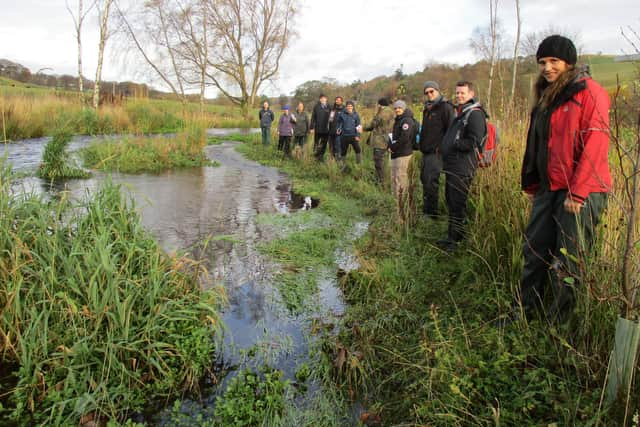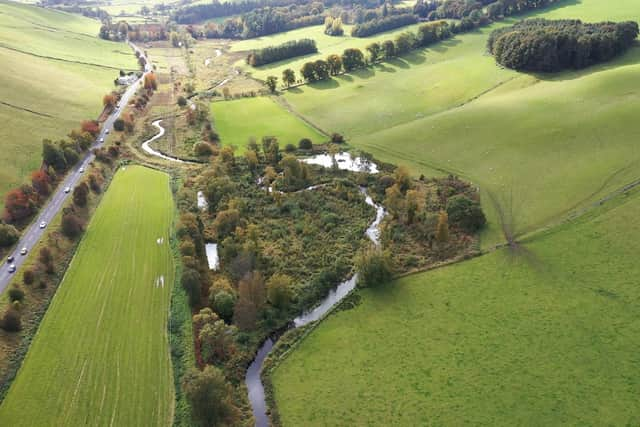Unesco designation for Scottish Borders river project that uses nature to hold back flooding
The pioneering scheme, based around the River Tweed, has used tree-planting and bringing back bends to the watercourse as part of its mission to improve resilience against flooding and boost biodiversity.
Developed by the Tweed Forum environmental charity at Eddleston Water, near Peebles, the site has been chosen as a Unesco Ecohydrology Demonstration Site – the only one in the UK.
Advertisement
Hide AdAdvertisement
Hide AdMeasures implemented include the creation of 38 new ponds to catch surface water and hold water back, as well as remeandering more than two miles of once-straightened river channels.
In excess of 100 engineered log structures have been installed in streams in the upper part of the river catchment. Built to allow fish to pass underneath, these slow excess water by directing it into land on either side of the channel.
More than 330,000 native trees have also been planted across the area, which have a positive impact on ecology and absorption of climate-warming carbon. These will also aid water infiltration in upstream areas where floods are generated and help to slow down overland water flows.
Results to date have shown reduced peak water levels downstream during heavy rain as well as a delay of up to seven hours in the timing of river peaks, which gives local communities more time to prepare and take action against floods.
Fish numbers have risen as a result of the increase in channel length brought about through the remeandering, while the diversity and numbers of aquatic invertebrates present in the river have bounced back to healthy levels in response to the range of new habitats which have been created in the new bends. Other species, including kingfishers, dippers, lampreys and otters, will also benefit from improvements to the river habitats.


Luke Comins, director of the Tweed Forum, said: “Climate change is increasing the frequency of extreme weather events such as flooding and our Eddleston Water project has already attracted international attention as scientists and policy makers try to understand how they can future-proof the landscape to be more resilient.
“We’re delighted that this Unesco recognition will enable us to continue to share the effectiveness of the nature-based solutions we’re implementing on a catchment scale both here and abroad.”
Mairi McAllan, Scottish environment minister, welcomed the UN recognition.
Advertisement
Hide AdAdvertisement
Hide Ad“This work shows the importance of natural flood management in reducing the risk from flooding downstream, as well as creating better habitats for many species,” she said.


“The Unesco designation is a great opportunity for others, both in Scotland and internationally, to learn from the project.”
The Eddleston Water project, now in its 13th year, is funded by the Scottish Government, EU Interreg and the Scottish Environment Protection Agency and delivered in collaboration with the University of Dundee, British Geological Services, local farmers and the surrounding community.
It acts as a living laboratory, collecting evidence of the benefits of natural flood management techniques. These aim to enhance flood resilience through restoration of natural processes that slow rivers and increase water storage capacity in the landscape. This reduces flood risk for communities, while also improving biodiversity.
Comments
Want to join the conversation? Please or to comment on this article.